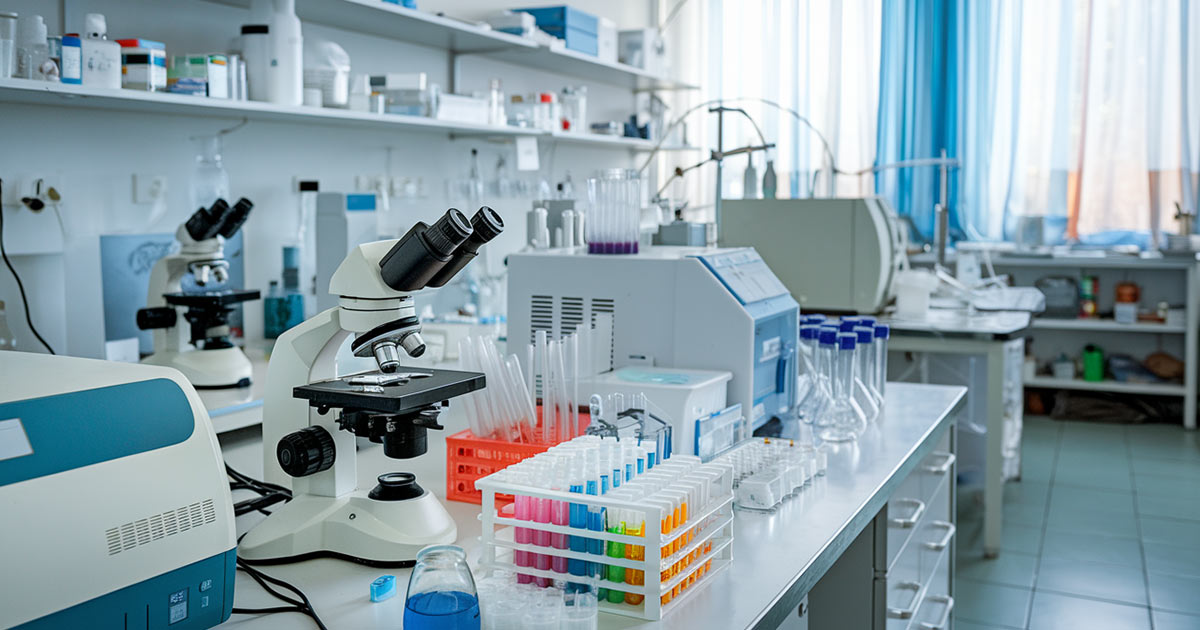
Master of Science Medical Lab Technology (MLT)
By NCTA Team Last Updated: December 31, 2025Overview:
Master of Science in Medical Laboratory Technology (M. Sc. MLT) is a two-year postgraduate program spanning four semesters in most universities/medical institutes across the country. Under this course, students will be provided with an with an advanced level of medical laboratory science, which underlines the basic principles of diagnostic analysis of body fluids, tissues, and cells. M.Sc. The mode of delivery of the program as a distance learning course is suitable for every individual who wishes to specialise in laboratory techniques, focussing heavily on diagnostics in patient care, disease control, medical research, etc.
The curriculum focusses on imparting in-depth knowledge in clinical biochemistry, microbiology, haematology, and immunology, among other areas of medical laboratory technology. Students practice how to perform complex laboratory procedures and medical data analysis and present an accurate understanding of the results. It also focusses on areas such as quality assurance, laboratory management, and professional ethics within clinical careers to enable students to become productive members of the healthcare team.
M.Sc. students' preparation for the MLT involves both intensive laboratory practicals as well as a strong theoretical component. Motivation: This practical part provides students with the opportunity to acquire skills in handling complex visualisation lab equipment and advanced diagnostic laboratory equipment. Moreover, through scientific research training, students are produced who are able to conduct research in scientific and medical fields and add value to medical science. The program arranges internships and industrial visits to hospitals and diagnostic centres to get a real working feel of the laboratories.
Course Curriculum:
The M.Sc. The curriculum of the B.Sc. in Medical Laboratory Technology program is extensive, guaranteeing that students receive a holistic exposure to medical diagnosis while pursuing their education. Key subjects include:
- Clinical Biochemistry
- Advanced Microbiology
- Haematology and Blood Banking
- Immunology and serology
- Clinical Pathology
- Molecular Biology Techniques
- Diagnostic Cytology
- Laboratory Management and Quality Control
- Research Methodology and Biostatistics
- Histopathology Techniques
- Clinical Instrumentation and Automation
- Advanced Clinical Laboratory Practices
Career Opportunities:
Students studying in the Graduate Medical Laboratory Technology program of M.Sc. have career prospects in various lines in the healthcare and diagnostic industries. Some possible roles include:
- Medical Laboratory Technologist
- Clinical Laboratory Manager
- Pathology Lab Technician
- Quality Control Analyst
- Clinical Research Coordinator
- Laboratory Consultant
- Biochemist
- Microbiologist
- Blood Bank Supervisor
- Academic researcher
- Medical Science Communication
A growing population ensures that there is always a need for skilled medical laboratory technicians in hospitals, diagnostic laboratories, and public health organizations. From the Edwards Lifesciences Centre for Advanced Cardiovascular Technology, graduates can go on to work at pharmaceutical and biotech companies or at academic institutions. Starting Salary for M.Sc. The average salary of an MLT graduate can range from INR 30,000 to INR 60,000 per month. Experienced healthcare professionals with expertise in a variety of fields have the ability to earn substantial salaries and develop into senior roles with more responsibility, making a real difference in patient care or medical research.
Course Features
| Course Code | UDC-652 |
| Duration | 2 Years |
| Category | Master of Science Medical Lab Technology (MLT) |
| Eligibility | B. Sc. in relevant stream |
| Fees | 2x55000 = 1,10,000 |
To know more about our this course, feel free to call us at:
+91 9733600770Ready to Enroll in This Course?
Start your learning journey today and unlock your potential!
Apply Now for This CourseCurrent Job Opportunities for This Course
Wanted Medical lab Technologist & Radiographer Vacancy in Kuwait under
Resolve Navi Mumbai, Kuwait, Delhi / NCRAbout company: RESOLVE provides specialized knowledge to the Pharmaceutical, Biotech and Healthcare industries. The availability of large Professional along with the shortened time of delivery empowers us to reduce the costs of the Clients and revamp their business.Our expertise complements the Client and our technologies can be accessed through collaboration Our services can be utilized to handle a multitude of complex computational challenges faced by Pharmaceutical, Biotech and Healthcare companies.
Read More

